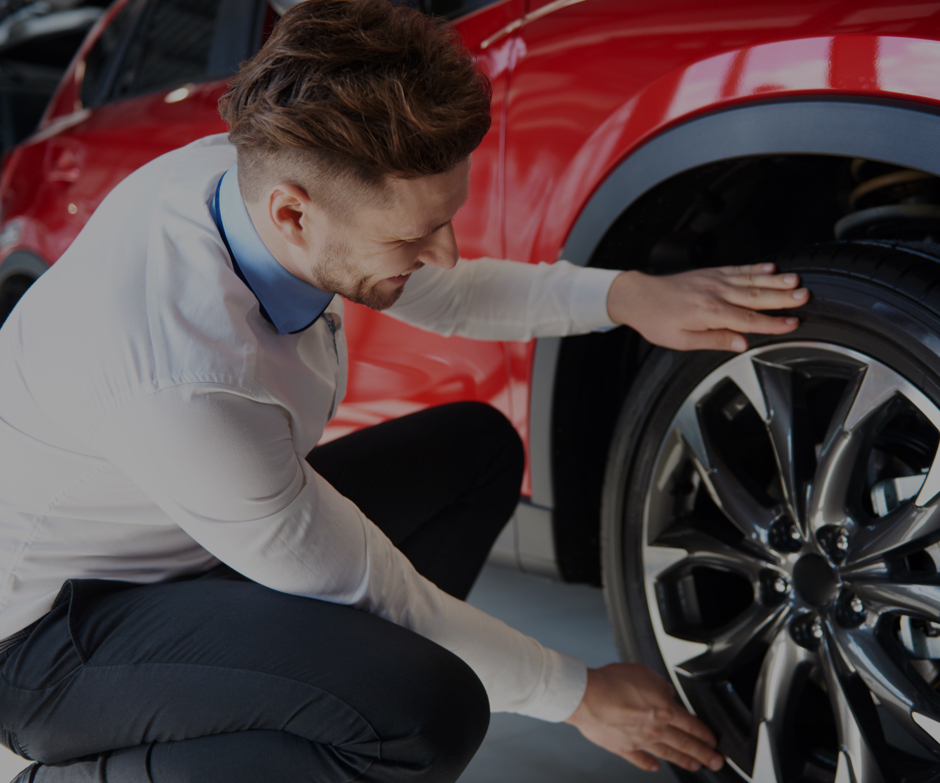Ensuring the safety of your employees in the workplace is a top priority for every business. You do everything you can to protect the well-being of your staff while they’re on the job, but what about staying safe to and from work? Regardless of what anyone in your company drives or where they drive it, the most important safety item on their vehicle is their tires.
Why is tire safety important?
The only connection between a driver and the road are the four small contact patches at each wheel, so tires are crucial for maximizing the safety of your employees and their families. If tires are in poor condition, not maintained properly, or aren’t suitable for whatever the current weather is, then it’s not an exaggeration to say the driver, passengers, and other drivers or pedestrians nearby could be at risk of serious injury or worse.
Safe tires: What to look for
Luckily, staying on top of tire safety is fairly straightforward, and it’s well worth the time and effort it takes to inspect tires and make sure they’re safe for driving. Here are a few key safety items to keep tabs on:
1. Air pressure
This is a simple but often overlooked safety check. People assume that if their tires don’t look flat, then they must be fine, or they’ll simply put too much trust in their tire-pressure monitoring systems (TPMS). But even with TMPS, manually checking tire pressure is vital, especially during the winter. The driver’s side door or owner’s manual will have the correct tire pressures, so make sure they’re set correctly, and it’s best to check them first thing in the morning when the tires don’t have any heat.
Note: Tire pressures can increase or decrease by one PSI for every 10 degrees of temperature change. It’s recommended to physically check tire pressures at least once per month. Because of modern tire construction, air pressures can be excessively high or low without the tires appearing any different, so use a tire gauge.
2. Treadwear and visible damage
Look across the surface of all tires for any signs of odd wear. If questionable wear patterns are visible, that means the vehicle likely needs an alignment or has damaged suspension components. Either situation can lead to unexpected and unsafe handling during regular driving or emergency maneuvers, and excessive wear could result in tire failure. Also be sure to look for bulges or bubbles in the sidewalls of the tires, as those can mean a tire is either defective or damaged from impact with one of the many potholes out there. That type of damage can lead to a potentially accident-causing tire blowout.
3. Tread depth
Tread depth is vitally important for safety, especially depending on weather conditions. Low tread depth can result in tires that aren’t able to evacuate water at highway speeds, which can result in hydroplaning. Low tread depth will often mean the tires have high mileage, and as tires age and go through numerous heat cycles, the rubber gets harder and offers less grip, even in dry, warm weather.
4. Tire type
Even if tire pressures are correct, the tread depth is adequate, and there are no signs of any odd wear or damage, they could still be unsafe if they’re the incorrect tires for the weather conditions. Summer tires start to lose grip as the weather cools down, and they’re useless at near-freezing temperatures, let alone if there’s any snow or ice on the ground. Even all-season tires will start to lose some traction as temperatures get into the 30s and low-40s. And the opposite is true for winter or snow tires; they deliver minimal traction as temperatures get warmer. Make sure your employees’ vehicles are always equipped with weather-appropriate tires.
5. Tire age
This is an easily overlooked safety item, but age plays a major role in how safe the tires are. If you notice dryness or cracking with a simple visual inspection, then they should obviously be replaced as soon as possible. However, even tires that look okay can be unsafe if they’re over 5-6 years old. Check the four-digit date code on the sidewall of all tires to determine their age. The first two digits are the production week and the second two are the year, so a tire with “4218” as a date code was produced during the 42nd week of 2018.

On top of all of your other business responsibilities, taking the time out of your schedule or having someone on staff check on tire safety concerns isn’t a cost-effective use of your time or your employee’s. Instead, let Zohr handle it for you. Zohr offers corporate perks and fleet services in Kansas City and Dallas Fort Worth to ensure your employees and their families are staying safe to and from work or anywhere else they drive. These are just a few of the highlights of our corporate perks program:
- Discounted Tire Services Delivered at Home or Work
- Complimentary Tire Condition Checkups
- Free Tire Giveaways & Raffles
In addition to our mobile tire technicians coming to you to deliver and install tires on all company vehicles, Zohr will also provide complimentary tire checks to all employees. Our technicians will leave a report on each vehicle showing the condition of each tire so employees can proactively plan their next tire purchase. There’s no charge to you or your business for this service, yet you get peace of mind knowing all the tires on your company vehicles and your employees’ vehicles have been inspected by professionals.
Contact Zohr.com for more information on our corporate programs in Kansas City or Dallas Fort-Worth. We specialize in mobile tire installation, so you can rest assured that you are working with industry leaders and certified technicians.
 What are the Best Tires for BMW? | Zohr
What are the Best Tires for BMW? | Zohr
